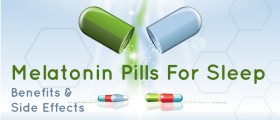
Naproxen is a drug which decreases the hormones that cause pain, fever and inflammation in the body in the case of arthritis, kidney stones, tendinitis, bursitis, gout, ankylosing spondylitis, and menstrual cramps. It belongs to non-steroidal anti-inflammatory drugs.
The patient must consult the doctor who must be informed with the patient history of health conditions. Naproxen is not recommended in various cases.if the patient is a woman she must inform the physician if she is pregnant. If the woman uses this medicine in the 3 last months of her pregnancy it is likely to happen that her child will have some defects. Even more, it is not recommended to breastfeed the newborn child if she is consume Naproxen. Furthermore, the patients who have problems with the liver and kidney must be very careful when they use Naproxen as the medicament. it is very important not to take this medicine in the treatment just before or after heart bypass surgery.
The pressence of high blood pressure, heart disease, circulatory troubles, asthma, polyps in the nose, diabetes must be reported to the physician. If the patient is smoking, then the use of Naproxen is not recommended.
Naproxen side effects
Naproxen also has some side effects whose appearance is different and varies from person to person but they are not often very serious.
The occurrences of diarrhea, constipation, dyspepsia, irritable colon, stomatitis, heartburn are the examples of gastrointestinal side effects which most frequently happen. There are reprts that ulcerative esophagitis, allergic sialadenitis, and pancreatitis hemorrhage or perforation occur.
Jaundice, yellowing of the skin or eyes and hepatitis are also likely to happen as hepatic side effects.
The patients often complain of the nervous system side effects such as depression, nervousness, hallucinations, confusion, agitation, cognitive dysfunction, insomnia, anxiety, dream disturbances, and aseptic meningitis.
Of cardiovascular side effects the most frequent are hypertension, dyspnea, peripheral edema, palpitations, and angina pectoris, while of hypersensitivity side effects the most common are angleodema of the face, extremities, lips, tongue, glottis, and larynx, bronchospasm, and erythematous or urticarial rush.
Other side effects include: headache and increase of the body weight, nausea, vomiting, tremors, and shakings. There have been cases where the following problems occurred: dark urine, reduced or frequent urination, serious allergic reactions such as rash and hives, joint pain and abdominal cramps. Many patients have the problems with the senses, especially the blurred vision and problems with balance and speech.
The most usual respiratory side effect is the bronchospasm although there have been cases when pulmonary infiltration combined with eosinophilia appeared.
Acute tubular necrosis, nephrotic syndrome, renal failure, papillary necrosis are usual renal side effects when the patient takes Naproxen.

















Your thoughts on this
Loading...